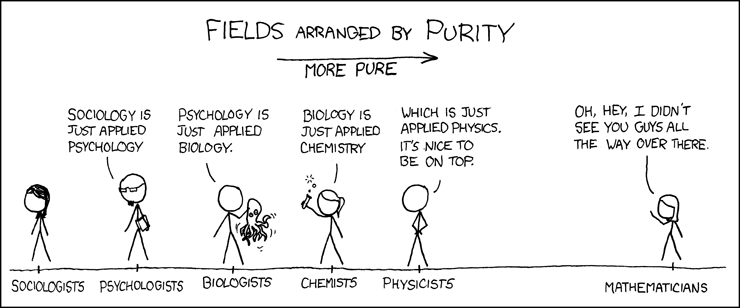Determinism could, presumably, be falsified by good evidence for acausality, i.e. randomness.
How would you identify randomness and demonstrate that the event has no deterministic cause behind it?
But I didn't say this was a special problem for LFW, I said LFW appears incoherent.
Well if your own position suffers from the exact same problems that you are leveling at other positions, then your arguments prove too much and you haven't provided any reason to prefer your own position.
The relevant question is whether it is possible to avoid, and this question underwrites the false equivalence of these sorts of analogies that you propose:...
I don't see the problem - you can reason that the world, including yourself, is deterministic, yet feel that it's hard to live out day to day whatever you think a determinist lifestyle should involve - because you are not accustomed to doing so. The degree of success you have in that you will depend on the kind of person you are.
I don't think this problem is significantly different from the way people find it hard to live up to their lifestyle philosophies or worldviews in other areas, e.g. religious worldviews. How many Christians find it easy to consistently adhere to the fundamental tenets of their belief system?
But it seems to me that most people that think the world is deterministic don't feel they have to live any different to anyone else, for the most part. But I think there are times when acknowledging it at the scale of human behaviour and interaction can potentially help reduce suffering and increase wellbeing and flourishing.
The quote you responded to already answers your response, "The relevant question is whether it is
possible to avoid, and this question underwrites the false equivalence of these sorts of analogies that you propose. . ."
Responding to the claim that deterministic self-contradiction is
impossible to avoid with analogies of self-contradictions that are
possible to avoid is just more of the false equivalence I already pointed out.
That's the point - what it means to be accountable. For a determinist, the individual that makes the mistake is the responsible agent that could not do otherwise in those circumstances.
But then it's not a mistake at all. You're just playing word games. To make a mistake is to do something that you should not have done. There are no mistakes on determinism, for there is nothing we do that we could have not-done.
There are many different concepts of truth, but one's thesis depends largely on one's knowledge, which is a result of experience (e.g. education) and can be correct or incorrect by correspondence to the results of observation, i.e. testing, or correspondence to a belief system or worldview (coherence truth), or according to its logic (formal truth), and so on.
Why do you assert that it requires 'freedom'? If what you have learned is correct by whatever measure is used to assess it and you assemble your thesis correctly, e.g. rationally & logically, based on that knowledge, then your thesis is likely to correspond to the truth by that measure. If your knowledge is incorrect by that measure and/or you assemble your thesis incorrectly, i.e. you make errors, then your thesis will not correspond to the truth by that measure.
Ah, but these are more word games, for you are redefining truth as the accomplishment of some stipulated goal.
At bottom here is the fact that you don't actually believe in truth, and have substituted for it a theory of mere prediction or desire-satisfaction. You think we are little more than Skinner's rats, utilizing trial-and-error to elicit some desired effect. When you use words like 'mistake', 'truth', 'correct', etc., you are really importing concepts from a different worldview, one which you don't seem to realize that you have abandoned. Anthropomorphisms aside, rats don't engage in such things.
If we are not able to contemplate whether something is true or false without our conclusion being fully determined by pre-existing causes, then we are not rational and we do not reason at all. In that case all our "reasoning" is deception (although deception itself also presupposes truth and freedom).
The proposition we use to represent the meaning of what? - truth? knowledge? determinism?
The meaning of determinism. The idea that we can have a truth-indeterminate abstract representation/proposition that is then assessed for truth is not possible on determinism. Such a notion presupposes that we be able to step outside of the causal world, pose a question, survey the causal world which we are at that moment standing over, and then draw a conclusion based on our assessment. The very ability to conceive of determinism implies an ability to stand over and transcend the causal order. Rats can't do any of this, but they still manage to fulfill some of their desires. ...So either we can truly conceive of determinism, in which case it is false (for it did not determine our conception of determinism) or else we are rats and the conception we have of "determinism" isn't determinism at all.
There is an insightful quote by George MacDonald which Petros includes in his signature:
"The difference between a man and a beast is that the man knows he's a man and the beast does not know it's a beast. And so the more a man becomes a beast, the less he knows it."


